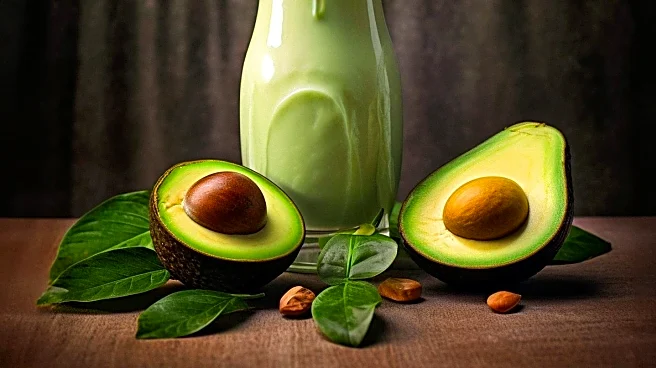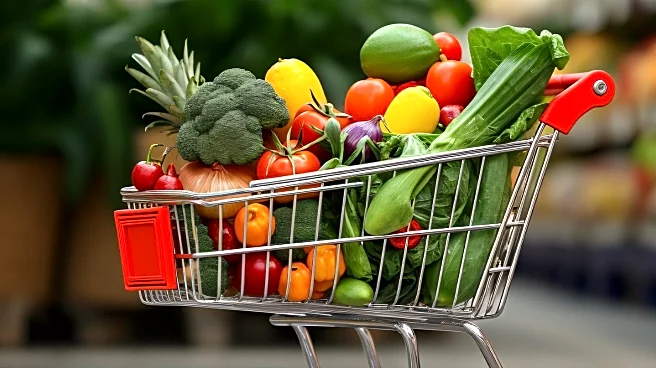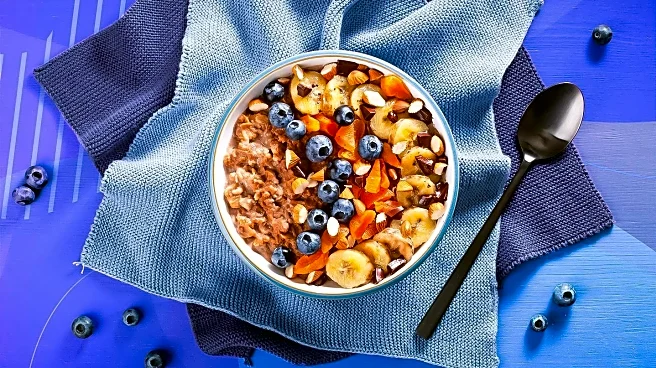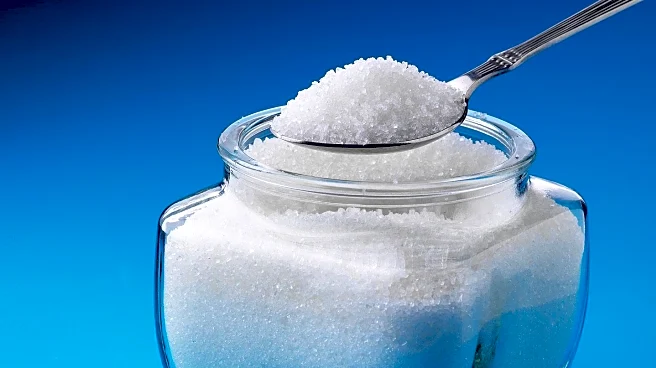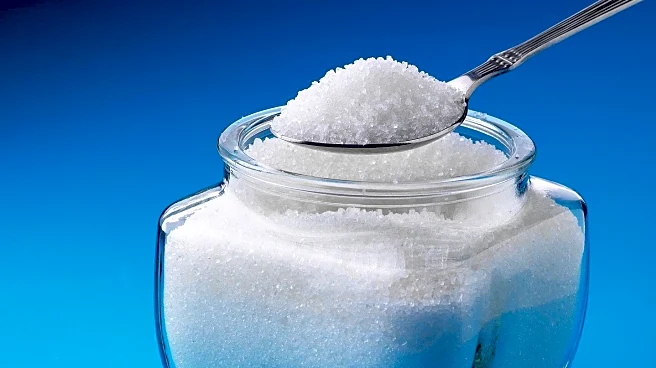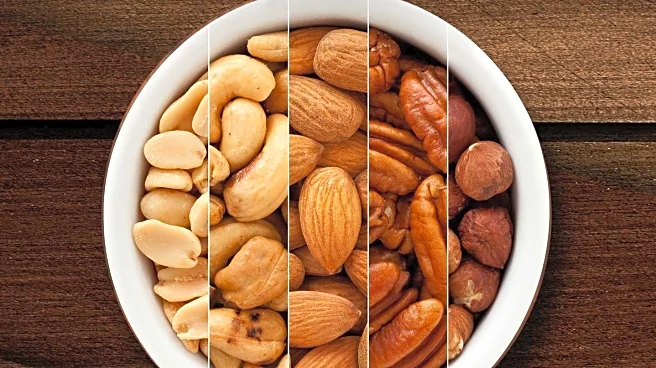What's Happening?
Dietitians are challenging the common perception that certain drinks should be avoided during weight loss efforts. According to a recent article, beverages such as cow's milk, soy milk, and 100% pomegranate juice can be part of a healthy weight loss plan. The article emphasizes that these drinks, often labeled as 'bad' due to their calorie content, can actually support weight loss by providing essential nutrients and aiding in muscle maintenance. For instance, cow's milk is highlighted for its high-quality protein content, which can help preserve lean muscle mass. Similarly, soy milk is noted for its protein and nutrient content, which can contribute to a balanced diet. The article also suggests that naturally sweetened coffee and low-calorie sodas can be included in moderation, offering alternatives to high-calorie beverages.
Why It's Important?
This perspective is significant as it challenges the restrictive mindset often associated with weight loss, promoting a more inclusive approach to diet. By allowing a variety of drinks, individuals can maintain a more sustainable and enjoyable diet, which is crucial for long-term weight management. The inclusion of nutrient-rich beverages can help prevent nutritional deficiencies and support overall health. This approach also addresses the psychological aspect of dieting, reducing the feeling of deprivation that can lead to diet failure. The advice from dietitians underscores the importance of balance and moderation, rather than strict elimination, in achieving weight loss goals.
What's Next?
As more dietitians advocate for a balanced approach to weight loss, it is likely that dietary guidelines and public perceptions will continue to evolve. This could lead to broader acceptance of diverse dietary practices that prioritize nutritional value and personal satisfaction. Individuals may increasingly seek personalized dietary advice from professionals to tailor their weight loss plans to include a variety of foods and drinks. Additionally, the food and beverage industry might respond by offering more products that align with these inclusive dietary recommendations.


